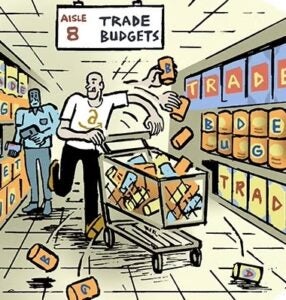 The merits of deep-linking are clear – considering the numbers on smartphone penetration, mobile needs direct links as much as, if not more than, the web – but deep-linking is not just a matter of embedding app links into the mobile experience and calling it a day.
The merits of deep-linking are clear – considering the numbers on smartphone penetration, mobile needs direct links as much as, if not more than, the web – but deep-linking is not just a matter of embedding app links into the mobile experience and calling it a day.
Not only do app developers have to consider the platform, app store and a user’s device type – for example, a deep link developed for an iOS device won’t work for Android – they have to manage the attribution and tracking. Where a developer links to often depends on whether or not a user has a certain app installed.
Oren Kaniel, CEO of mobile ad measurement platform AppsFlyer, refers to unattributed links as “dumb links.”
“There isn’t any way of knowing which source contributed to which link,” he said.
On Wednesday, AppsFlyer launched OneLink, a solution that enables developers to generate a so-called “smart” link that auto-detects a user’s platform and installed apps. If the app in question isn’t installed, the user is automatically redirected to the appropriate app store.
OneLink also plays nice with other deep-linking services, said Kaniel, who noted the ability to run attribution, including installs, app opens, retention and lifetime value, with roughly 700 ad networks, as well as Facebook, Twitter and Google.
Although AppsFlyer beta tested OneLink with multiple customers – the company’s client list includes Domino’s Pizza, Sega, Foursquare, Baidu, RunKeeper, Kingsoft and others – Kaniel declined to name which ones participated in the test. AppsFlyer has 50 employees spread across three offices in San Francisco, Beijing and Tel Aviv. Kaniel told AdExchanger the company plans to open new offices in Tokyo, Sydney, Seoul and Sao Paulo early next year.
Deep-linking awareness may be growing, but there’s still more work to do, said Alex Austin, CEO and founder of deep-linking outfit Branch Metrics, which receieved $3 million in seed funding in September
“Mobile linking is hard,” he said. “That’s because there are so many edge cases you have to deal with.”
Branch provides deep-linking technology that enables app users to share content and referrals even if the recipient of a shared link doesn’t have the app already installed. Branch links also provide tracking data, including info on new installs and re-engagement, as well as additional analytics around user behavior.
Because of the ways apps are built, deep links need to do more than traditional web links, which simply load a new page in a browser when a user clicks on them. In the mobile environment, if a user doesn’t have the app installed, that person is probably going to be presented with an ugly-looking error message after clicking. Aesthetics aside, that’s bad UX.
But that’s not the only issue. If a user doesn’t have the app installed, that person will be taken to the app store – a potentially messy process, Austin said.
“Redirecting to the app store has to be done a different way for each browser,” he said. “On Android alone, it’s done differently for Chrome, Firefox and the stock browser. Then throw into the mix the fact that each app store has a different URL – Apple App Store link for iPhone, Apple App Store link for iPad, Google Play link, Windows phone, Fire phone…agh.”
That’s why in mobile the “where” can be just as important as the “who.” The goal is to provide the best possible experience regardless of device type, browser, app store or platform.
“We’re starting to coin a new term for it,” Austin said. “Contextual linking.”













